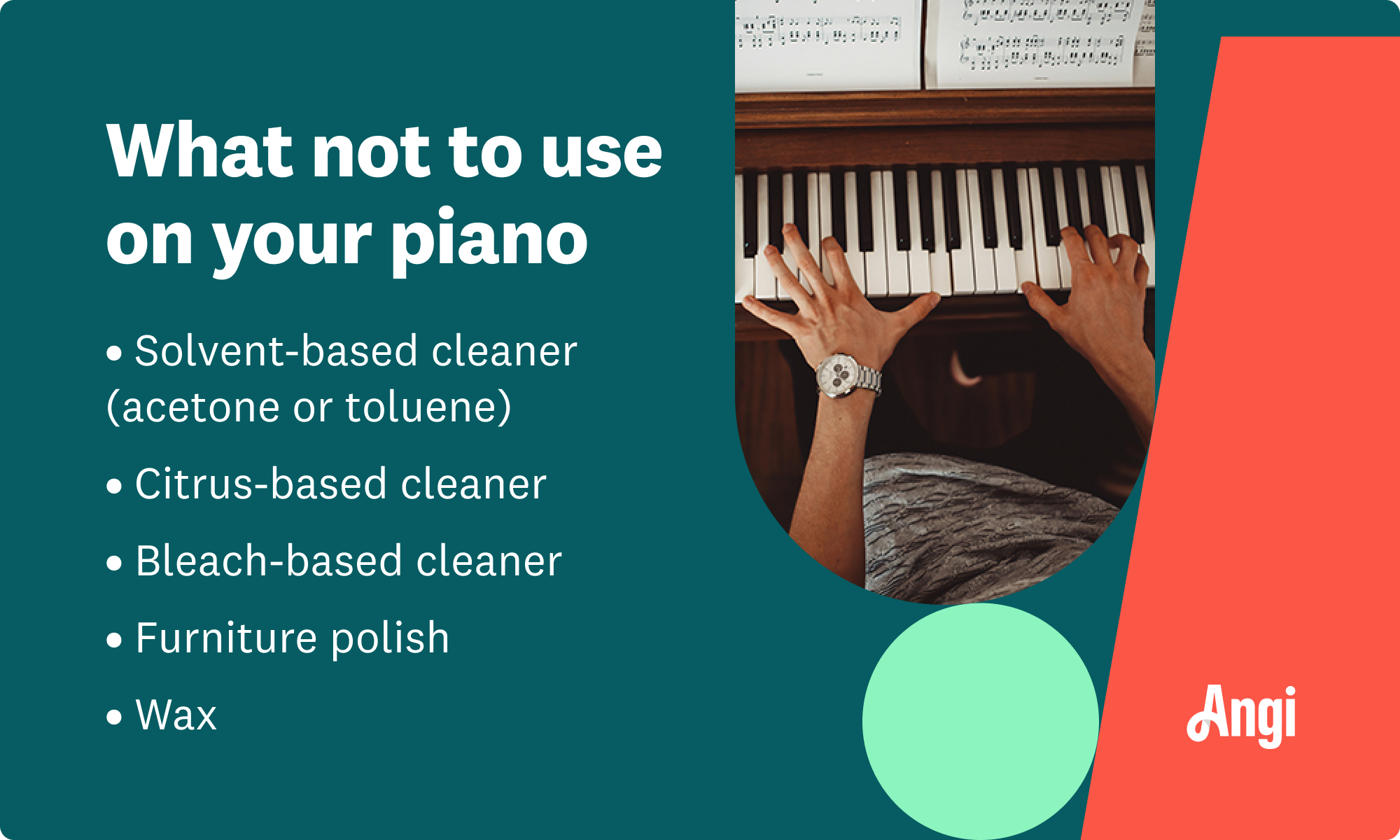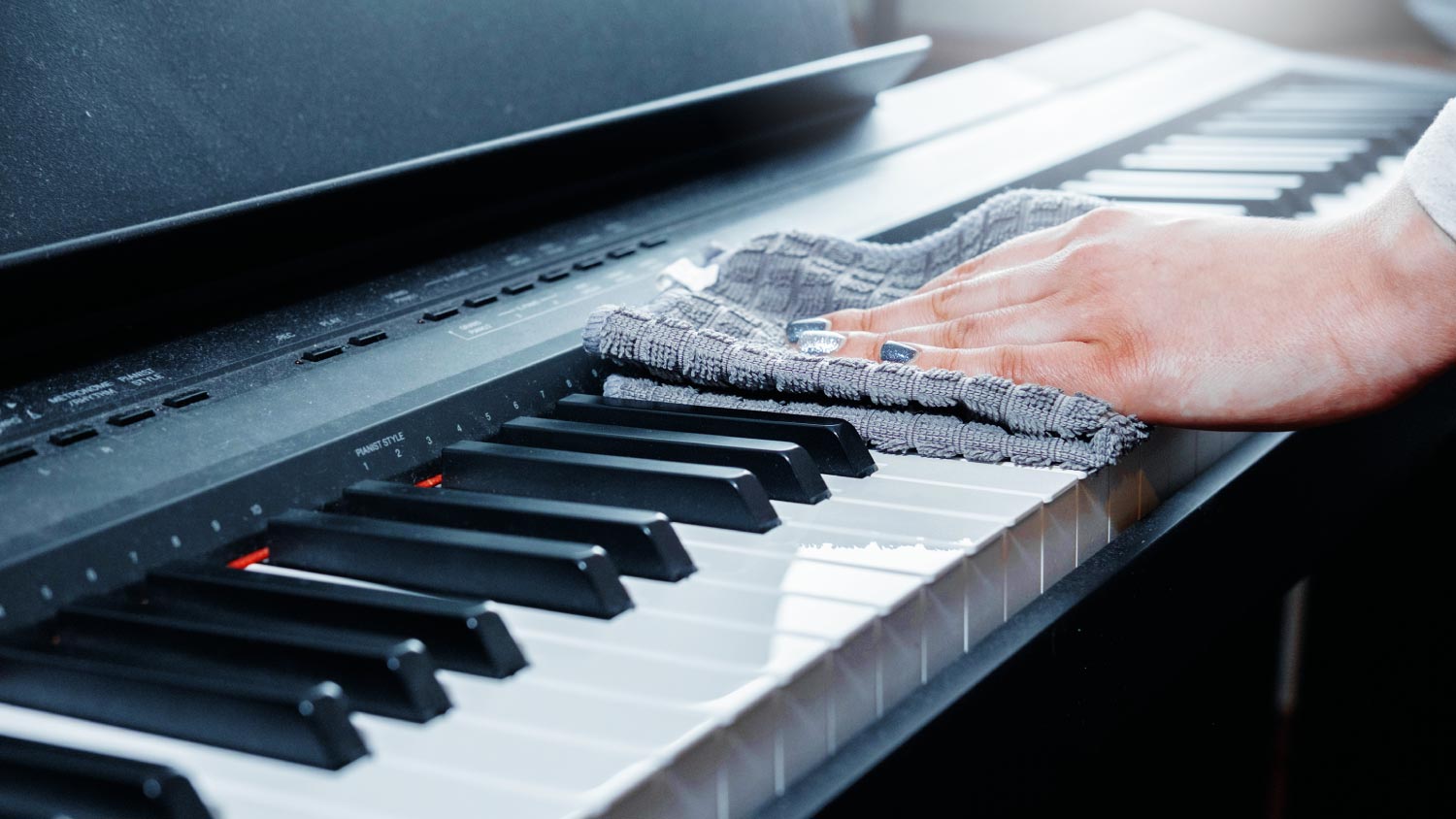Hit the Right Note With This Piano-Cleaning Guide
Follow these low-key tips before you tickle those ivories


Highlights
Keep the piano exterior clean using a soft cloth dampened with water.
Disinfect keys between uses with a bit of rubbing alcohol.
Never apply liquid directly to any part of the piano to avoid damage.
Skip any waxes or polishes that’ll cause buildup.
Don’t display frames, vases, or other decors on top of your piano to protect the finish.
A well-tuned piano can create sweet music, but you’ll still hit some sour notes if you don’t keep your piano clean. Fortunately, maintaining your piano—be it a baby grand or an upright—isn’t as complicated as playing a concerto. Here’s how to do it.
Maintain Your Piano Exterior

The renowned piano manufacturer Steinway recommends cleaning the outside of the piano by dampening a clean piece of cloth with water. Be sure not to soak the cloth, as you don't want to risk any moisture getting into the instrument. Gently rub the exterior with the cloth to remove any fingerprints and accumulated dust, and follow up with a dry cloth.
For pianos with a glossy finish, you can also use a dry microfiber polishing cloth to wipe the instrument's exterior. You might be tempted to keep that luxurious look with a coat of wax or furniture polish, but Steinway doesn't recommend this method. If you do, you'll likely cause buildup on the exterior of your piano, which would then require a trained professional to remove it.
According to Yamaha, another creator of fine musical instruments, it recommends using a mild soap and water mixture on a soft cloth to clean any soiled spots. After you wipe with that cloth, follow up with a damp cloth and then a dry one to remove any remaining soap or moisture.
Disinfect Piano Keys

This might not be too much of an issue for you if you're the only one tickling the ivories at home. But for pianos that multiple users play, you need to clean and disinfect the keys to avoid spreading germs.
A bit of hydrogen peroxide that you can get at any drugstore or supermarket is the best for cleaning piano keys safely. Put a little on a cotton pad (no need to soak it) and wipe down the tops of the keys, moving from back to front. Wipe down each key with a dry cloth after cleaning. Don't leave any liquid behind to dry; otherwise, it could seep in between the keys.
You can also dilute any alcohol-based disinfectant to clean the keys. However, avoid bleach-based cleaners or anything with citrus, like lemon or orange, as the acid in the fruit can cause stains or discoloration.
Take Care When Cleaning Delicate Surfaces
Even with gentle cleansers, it's best to do a spot test on the surface. Wipe down a small spot on your piano interior, then inspect it a few moments later. If you don't see any discoloration or other damage to the finish, you may proceed with cleaning the rest of it.
Again, plain water is best if you're concerned about damaging your beloved instrument. Just be careful to use a damp cloth, not a wet one, to wipe down keys and the surface. When water gets in between the keys, it can make them difficult to play. And if moisture gets further into the instrument, it could damage the piano.
Don't use any solvents to clean the piano keys as they can cause damage. Examples of solvent-based cleansers include those with acetone or toluene. Water-based cleaners are best if you're not using plain water on its own.
Maintain a Clean, Dust-Free Piano
Pulling a cover over your piano in between uses is always a good option for keeping it dust-free. However, if your instrument is a focal point of the room, dust it using the damp cloth method regularly or ask your local home cleaning pro to take special precautions to keep your piano looking pristine.
Your piano deserves to be the focus of attention, but remember that it's an instrument, not a mantelpiece or coffee table. Don't place any framed pictures or other decorations on top, or else you’ll risk scratching the surface or even negatively affecting the sound. Above all, keep any liquid-filled objects far away from those keys, be it a flower vase, wine glass, or cup of water.
